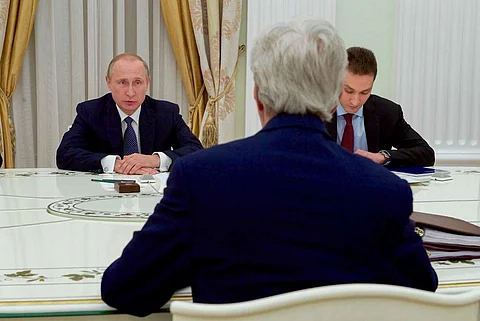

In a high-stakes diplomatic encounter, Russian President Vladimir Putin met with Milorad Dodik, the embattled President of Republika Srpska, on April 1, 2025, inside the Kremlin’s historic Senate Palace. The visit comes at a time of mounting legal and geopolitical pressure surrounding Dodik, who remains a controversial figure in Bosnia and Herzegovina and across the wider Balkan region.
The meeting between Putin and Dodik underscores the Kremlin’s strategic backing of the Serb-majority entity, despite an international arrest warrant issued just days earlier by authorities in Sarajevo. On March 27, Interpol Bosnia formally requested Dodik’s arrest following a February court ruling that sentenced him to one year in prison and barred him from holding public office for six years. The charges stemmed from his refusal to implement decisions by High Representative Christian Schmidt, whose legitimacy Republika Srpska disputes.
Defying the warrant, Dodik traveled to Moscow, where he posted a symbolic video near the Kremlin walls, honoring Soviet soldiers at the Tomb of the Unknown Soldier—a nod to shared narratives of resistance and historical memory. He declared plans to return to Moscow on May 9 to mark the 80th anniversary of Victory Day, aligning his political identity with Russia’s commemorative power.
Dodik’s visit follows a series of legislative maneuvers in Republika Srpska aimed at restricting state-level institutions, sparking a legal standoff with Bosnia’s Constitutional Court. Although the court temporarily blocked those measures, the political fallout continues.
The Russian Foreign Ministry has condemned the conviction as “fabricated” and “politically motivated,” reflecting Moscow’s long-standing support for Republika Srpska’s autonomy. The Kremlin maintains that the charges are part of a Western-backed campaign to weaken Serb political actors in the Balkans.w
Dodik, who has cultivated ties with both Russia and Hungary, remains defiant. His continued diplomatic engagements—including a recent trip to Israel—signal his refusal to submit to Western judicial pressure.
The United States and United Kingdom have sanctioned Dodik for what they describe as efforts to undermine Bosnia’s constitutional order and peace framework. Meanwhile, Hungary and Serbia have denounced the Interpol notice as illegitimate, with claims that it violates the organization's founding charter.
This sharp divergence in international positions reflects the deeper fragmentation of alliances in the post-Dayton Bosnia framework, as well as the intensifying East-West competition over influence in the Balkans.